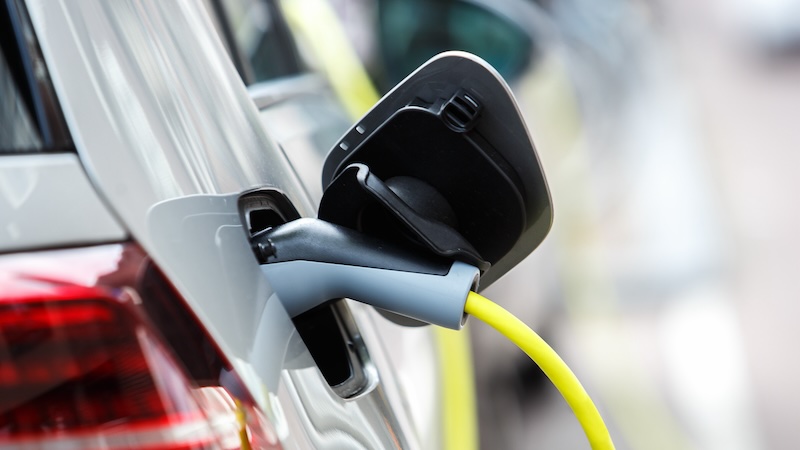
Anyone who knows me knows that I have an affinity for electric cars. Ok, I’ll be honest: I’m an absolute fan. I not only love the driving behavior, but I’m also convinced that electromobility plays a very important role in climate protection. But I’m also concerned about the slump in sales of electric vehicles. A column by Gerold Wolfarth.
As soon as the subsidies for electric cars were stopped, sales figures fell. According to the Federal Motor Transport Authority, around 22.4 percent fewer new electric cars were registered by August 2024 than in the eight comparable months of 2023. This shows that the market is not able to support itself.
But why are electric cars suddenly so evil? Are they the reason why our entire automotive industry is in deep crisis? I try to make the analysis as neutral as possible from the perspective of a medium-sized entrepreneur.
Are electric cars damaging the industry? The car summit
A virtual car summit took place at the end of September 2024, a meeting between representatives of the car industry and Federal Minister of Economics Robert Habeck. The wishes and opinions of the car manufacturers’ CEOs are clear: more funding needs to be provided by the state and taxpayers’ money. Politics itself should demand less.
A reversal in the political demands to advance electromobility should be the solution to all problems. I think the industry makes it too easy to blame electromobility. Because aren’t the problems much deeper?
An international view
The decline in electric car sales is a fairly German issue. Sales are going very well worldwide. Unfortunately, the German car manufacturers simply missed the starting signal. And so, for example, in the huge Chinese market, it is now mainly Chinese brands that are making profits. In the USA is by far Tesla in front. Is German politics to blame for this or should we blame ourselves for the failure?
I also see a different issue in the constellation between the specific offerings of German car manufacturers and the demands of German customers.
Apart from the fact that the skepticism in this country when it comes to new things is generally very high, the cars should then be manufactured in Germany, in the best quality by workers who are well paid – but the product must be as cheap as possible and for everyone be affordable.
Can’t work, can it? On the other hand, Audi, Porsche and Co. bring luxury electric SUVs onto the market that in the end no one can or wants to afford anymore. In doing so, you are further damaging the reputation of electromobility. This doesn’t all add up.
E-cars and the automobile crisis: Are we doing too well?
Ok, now comes another “unpopular opinion”. But could it be that the employees in the large automobile companies were simply doing too well for far too long? In the fat years it is easy to be generous with money. High salaries, plus bonuses and special payments: plenty of pension solutions and so on.
Sorry, but what company can afford to consistently offer so many financial benefits? The Collective agreement VW, for example, was signed over 75 years ago and has only been “improved” ever since. This can’t actually work well in the long term. How should times of crisis be overcome like this?
Don’t get me wrong. It is absolutely important and right that all employees are paid fairly and can lead a good life. But those who live and float above their circumstances will eventually be brought down to earth. And unfortunately that is now the case.
That at the beginning of 2024 at the top manager level Salary increases and bonuses canceled was a good step – unfortunately quite late.
Conclusion
Yes, it’s complicated. And yes: the situation for the automotive industry is of course a major challenge at the moment. There are no easy solutions either. That is clear. But I would like those responsible not to always look for reasons in politics and the overall situation.
We all have to deal with the overall situation somehow in all sectors. If my company gets into trouble, I can’t blame the customers and business partners for it, but I have to check what isn’t running optimally internally and where improvements need to be made. And then it helps not to complain, but to look for solutions and do them!
Also interesting:
- Home visits after reporting sick: The working atmosphere at Tesla is sick!
- Ultralight structural battery aims to increase the range of electric cars by 70 percent
- Study reveals: This is why batteries lose capacity
- Germany has huge deposits of copper and lithium – for millions of electric cars
The article Are electric cars destroying the German automotive industry? by Gerold Wolfarth first appeared on BASIC thinking. Follow us too Facebook, Twitter and Instagram.
As a Tech Industry expert, I believe that the rise of electric cars is not destroying the German automotive industry, but rather challenging it to adapt and innovate in order to stay competitive in the rapidly changing market. Electric cars represent the future of transportation and sustainability, and it is crucial for German automakers to embrace this shift and invest in developing their own electric vehicle technology.
While it is true that the transition to electric cars may pose challenges for traditional automakers who have long relied on combustion engine vehicles, it also presents new opportunities for growth and differentiation. German automakers have the resources and expertise to lead in the electric vehicle market, and those who are able to successfully pivot towards producing electric cars will likely thrive in the long term.
Ultimately, the success of the German automotive industry will depend on its ability to adapt to changing consumer preferences and technological advancements. By investing in electric vehicle technology and embracing innovation, German automakers can continue to be leaders in the global automotive market.
Credits